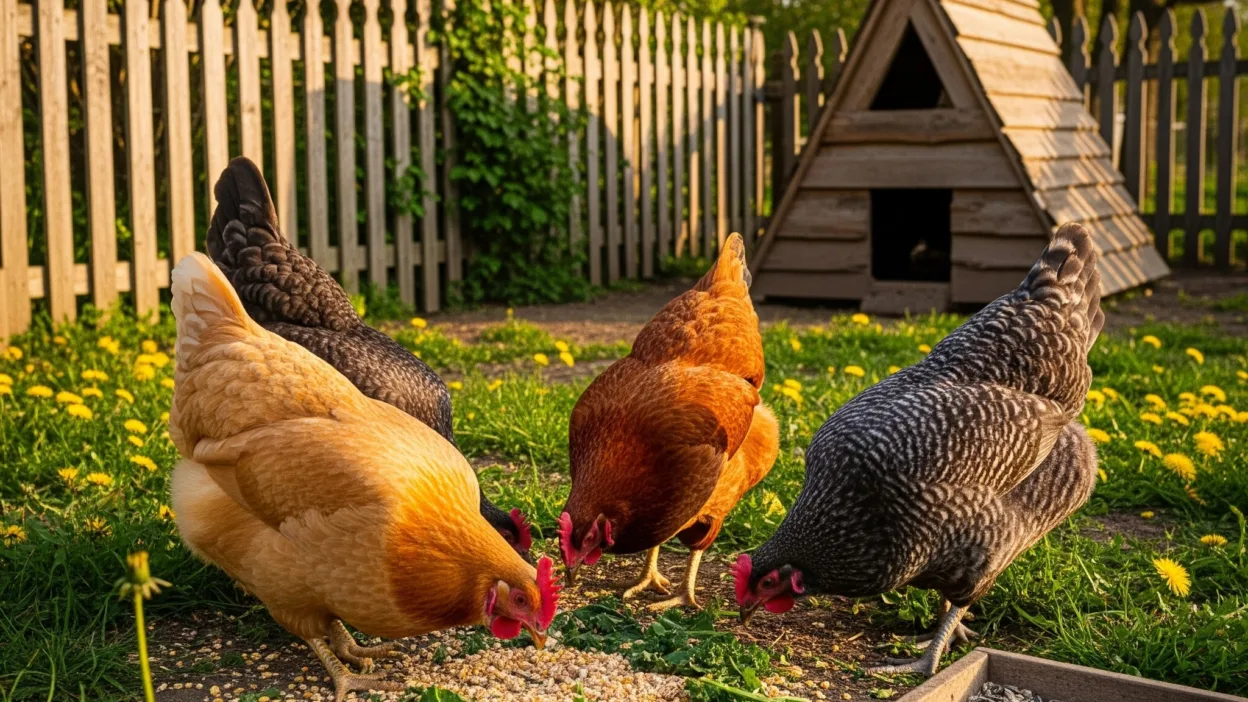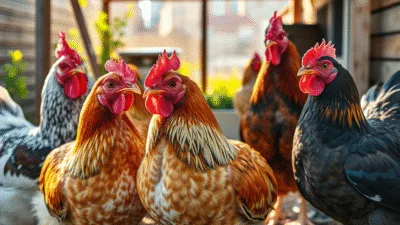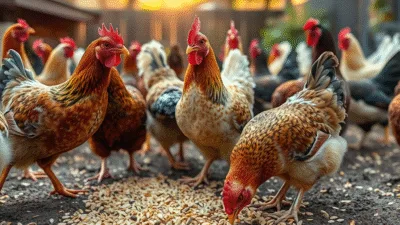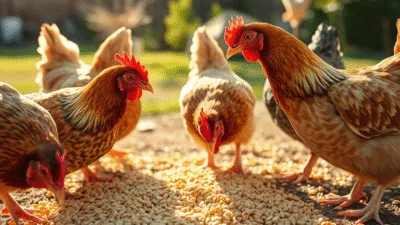Commercial layer pellets are convenient, but they’re not your only option when it comes to keeping a happy, healthy flock. Whether you’re focused on sustainability, cost savings, or a more natural diet, it’s entirely possible to raise chickens without commercial pellets and still get delicious, nutritious eggs.
In this post, you’ll learn how to feed chickens naturally without pellets, what nutrients they still need daily, and the best natural food sources for balanced poultry health.
Why Consider Alternatives to Pellets?
Pellets are formulated to provide complete nutrition, but many chicken keepers are moving away from them because of:
- Rising feed costs
- Preference for organic or local food sources
- Desire for a more self-sufficient flock
- Concerns over fillers or additives in commercial feed
Whether you’re homesteading, living off-grid, or just want more control over your chickens’ diet, natural feeding offers flexibility and long-term benefits.
Understanding Chicken Nutritional Needs (Without Pellets)
Before replacing pellets, you must ensure your hens receive the following essential nutrients: Nutrient Function Natural Sources Protein Egg production, growth Legumes, insects, mealworms, seeds Calcium Strong eggshells Crushed eggshells, oyster shell, dairy scraps Carbohydrates Energy Grains, fruits, vegetables Vitamins & Minerals Immunity, metabolism Greens, herbs, garden produce Fats Feather health Sunflower seeds, flaxseeds, fish scraps
Balanced natural feeding requires variety not just scraps or grains alone.
Natural Feed Options for Chickens (Pellet-Free Diet)
1. Whole Grains
Grains are a great energy source and base for a pellet-free diet:
- Cracked corn
- Oats
- Barley
- Wheat berries
- Sorghum
- Millet
Mix different grains to offer variety and improved nutrition.
2. Legumes and Protein Sources
Protein is crucial, especially for laying hens. Add:
- Split peas and lentils
- Black oil sunflower seeds
- Cooked beans (fully cooked to remove toxins)
- Mealworms (farmed or dried)
- Table scraps: cheese, yogurt, or eggs (yes, chickens can eat eggs)
If free-ranging, your flock will naturally consume protein-rich insects.
3. Vegetables and Greens
Chickens love fresh produce, which also boosts immunity and egg flavor:
- Kale, spinach, lettuce
- Carrots, beets, squash
- Cucumbers, broccoli, cabbage
- Pumpkin and melon seeds
- Sweet potatoes (cooked)
Feed garden scraps or grow a small chicken garden for seasonal greens.
4. Fruits (In Moderation)
Fruits are high in sugar but provide vitamins and hydration:
- Apples (no seeds)
- Berries
- Watermelon
- Bananas
- Grapes
Treat fruits as supplements not daily staples.
5. Calcium Sources
For strong eggshells, include:
- Crushed eggshells (baked and ground)
- Ground oyster shell (available at feed stores)
- Dairy scraps like yogurt or cottage cheese
- Dark leafy greens (collards, mustard greens)
6. Foraging & Pasture Feeding
If you allow your hens to free-range, they’ll naturally gather:
- Insects and worms
- Seeds and wild greens
- Small stones for digestion (natural grit)
This is one of the most natural ways to feed chickens and it reduces feed needs significantly.
Tips for Transitioning Away from Pellets
- Start slow: Gradually reduce pellet intake while increasing natural feed sources
- Provide grit: If chickens aren’t on pasture, offer grit to help with digestion
- Observe egg production: Monitor egg size, color, and shell quality as you shift diets
- Supplement seasonally: In winter, you may need extra protein and fats
- Use feeders wisely: Natural grains and scraps can attract pests if left uncovered
What NOT to Feed Chickens
When feeding naturally, avoid:
- Raw potato peels (especially green ones)
- Avocado skins or pits
- Chocolate and caffeine
- Moldy or spoiled food
- Salty or greasy leftovers
- Onions and garlic (can affect egg flavor in excess)
Sample Daily Natural Feeding Plan (For 4–6 Hens)
Time Feed Morning Grain mix (oats, barley, cracked corn) + crushed eggshells Midday Garden greens or veggie scraps + sunflower seeds Evening Cooked lentils + foraged insects (or dried mealworms) Treat (2–3x/week) Fruit slices or fermented grains
Final Thoughts: You Don’t Need Pellets to Raise Happy Hens
Feeding chickens naturally without pellets isn’t just possible, it can be healthier, more affordable, and more sustainable. As long as you balance protein, calcium, and energy, your hens will thrive and continue producing quality eggs.
By using a mix of grains, foraged food, garden scraps, and homemade supplements, you can take full control of your flock’s nutrition in the natural way.



